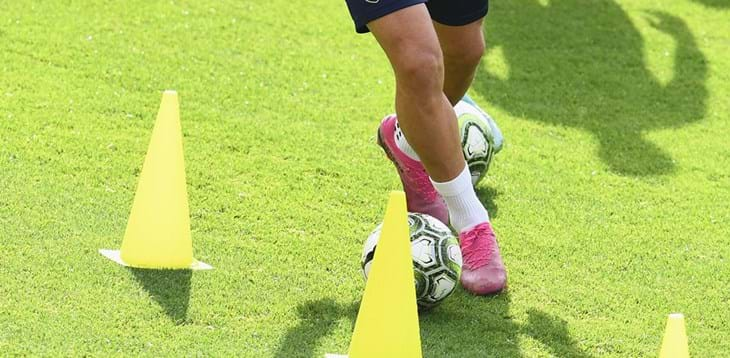
Coronavirus, the FIGC Medical Commission at work to identify a guarantee protocol
The guidelines were presented in today's online meeting. Gravina: “Because of the role that football plays, I am convinced that we can make an important contribution to the whole country”Wednesday, April 8, 2020

The Federal Medical Commission met via video conference today, with the meeting chaired by Prof. Paolo Zeppilli and the objective being to analyse and define a guarantee protocol for the world of football in the event that sporting activities are allowed to resume.
FIGC President Gabriele Gravina introduced the session by thanking all the new members of the Commission who had been recruited since the outbreak of the Coronavirus emergency, such as Roberto Cauda (Professor of Infectious Diseases at the Catholic University), Massimo Fantoni (Primary Covid19 Unit of the Policlinico Gemelli), Walter Ricciardi (WHO member, Councillor of the Ministry of Health) and Francesco Vaia (Health Director of the Lazzaro Spallanzani National Institute for Infectious Diseases). Medical managers of the various federal components were also present at the online meeting.
Gravina highlighted the Federation's objective, which is to protect the health of athletes, referees, members of staff and all other workers. The Federation President stressed that football has extraordinary needs due to the economic contribution it generates and the great media exposure, which gives rise to great responsibilities for employers (the clubs).
It is therefore important to clearly identify all possible dangers in order to set out priorities and limit any and all of these potential risks.
“If and when we should get the green light for a gradual restart,” said President Gravina, “the world of football must be ready. That is the aim of our work as a Medical Commission, and in that regard I would like to thank all the experts who have accepted our invitation to be a part of this. Given the role that football plays in Italian society, I am convinced that we can make an important contribution to the whole country.”
A set of guidelines were presented during the meeting, which in due course will be added to by the experts and member representatives in order to define one final and definitive protocol as soon as possible. This protocol will be inspired by three fundamental principles: simplicity, feasibility and medical-scientific reliability.
The draft presented to the Commission for the professional sector indicated how to form ‘team groups’, how to clinically keep track of team members (football players, coaches, doctors, physiotherapists, workers, etc.) and which diagnostic tests should be carried out by the social doctor and team doctor (molecular tests, serological tests, general blood tests, etc.).
The protocol concerning footballers and members of staff already infected and ‘cured’ of COVID-19 was also discussed. The diagnostic tests indicated for this category will follow a protocol appropriate to the clinical severity of the infection suffered (with particular attention to the respiratory and cardiovascular system).
All these protocols extend to the ‘referee group’, who will be considered in the same way as the players of the individual teams.
In the discussion, it was recommended that ‘team groups’ should initially meet in ‘closed’ environments (e.g. sports centres, training centres and the like), which would obviously need to be sanitised and in line with all the hygienic-behavioural norms, even for those who do not belong to the restricted group.




